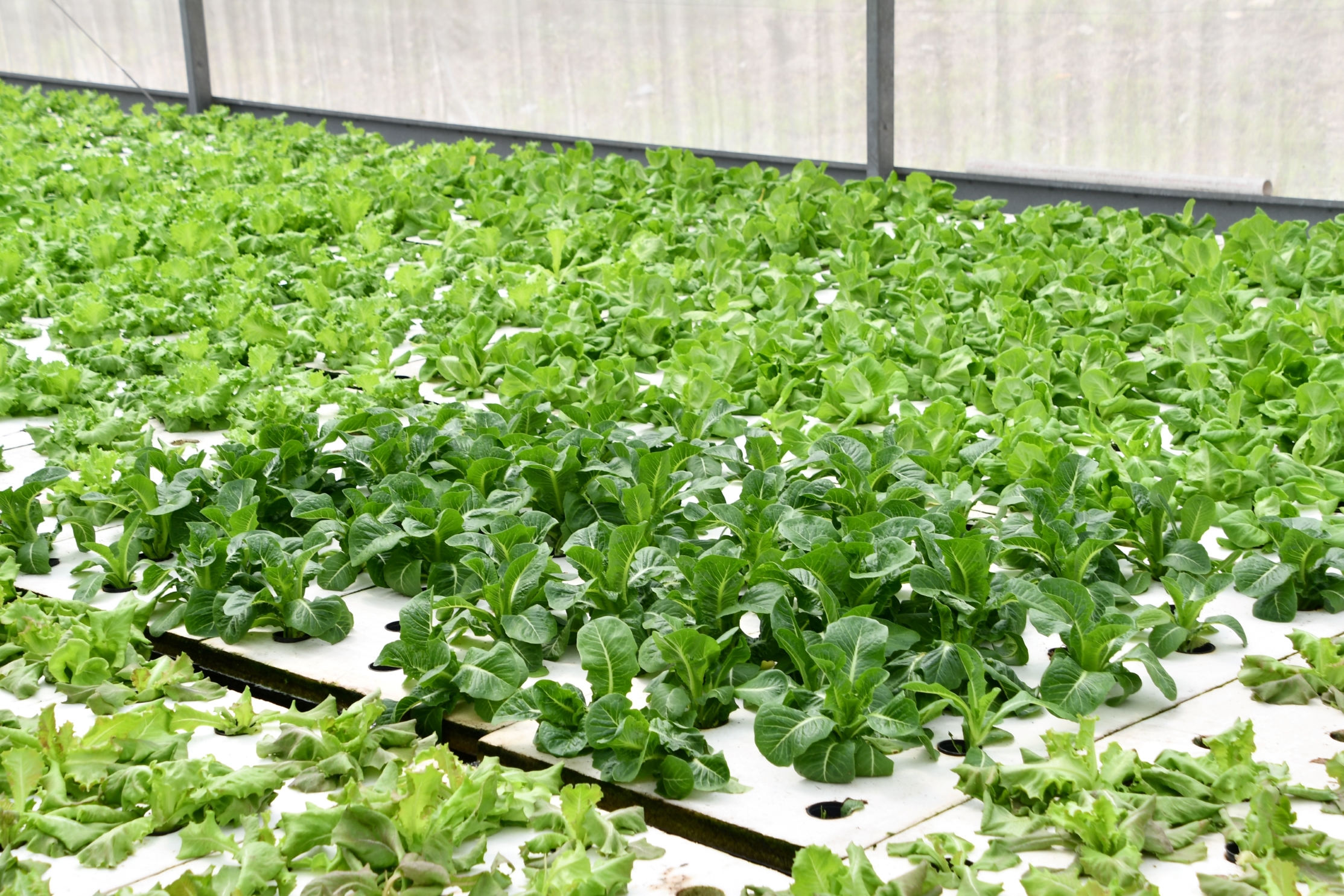
The Bachelor of Science in Aquaponics is devised to provide students with the knowledge, and skills for a dynamic career in the aquaponics industry, or to continue for graduate education The coursework will provide a strong foundation in aquaponics, hydroponics, vertical farming, by integrating technical, biological, economic, and social principles across different disciplines. Courses in in General Horticulture, Fruit and Vegetable Production, Agriculture Economics, Greenhouse Production, Quality Assurance of Agricultural Products, Food Safety, and Engineering Drawing, are integral components of the program.
Upon completion of the Bachelor of Science Degree in Aquaponics students will be able to:
Bachelor of Science Degree: Aquaponics (120 Credits)
Students in the BS program in Aquaponics will fulfill General Education requirements outlined for the BS degree by taking Freshman Studies courses (if required), taking a proscribed set of 3 humanities courses and 9 additional humanities credits to fulfill the 18-credit humanities requirement, taking 28 credits of proscribed science and math courses, and taking 9 credits of social sciences. Total credits earned must add to 120 credits. Other Requirements*.
A. General Education Requirements 52 Credits
B. Aquaponics 50 Credits
C. Elective Courses 9-15 Credits
Total 120 Credits
*Other Requirements (2 Credits): Students are required to take 0.5 credit hour in Physical Education for every semester they are full-time students up to the required two credits. PLS 200 may be used to meet this requirement.
English Proficiency Examination
Computer Literacy Examination
| Course Number | Course Name | Credit Hours |
|---|---|---|
| § FDS | Freshman Development Seminar | 1 |
| COM 119 | Interpersonal Communication & Leadership Skills | 3 |
| ENG 120 | English Composition | 3 |
| MAT 140/MAT 143 | College Algebra/Pre-Calculus Algebra | 4 |
| AGR 101 | Introduction to Agriculture | 3 |
| AGR 112 | Careers in Agriculture | 1 |
| Total: 15 |
| Course Number | Course Name | Credit Hours |
|---|---|---|
| BIO 141 | General Biology I | 4 |
| MAT 235 | Introduction to Statistics with Applications | 4 |
| § SSC 100 | An Introduction to the Social Sciences | 3 |
| § SCI 100 | The Natural World: The Caribbean | 3 |
| Total: 14 |
| Course Number | Course Name | Credit Hours |
|---|---|---|
| AGR 130 | General Horticulture | 3 |
| BIO 142 | General Biology II | 4 |
| CHE 141 | Introduction to Chemistry | 4 |
| CHE 141 L | Introduction to Chemistry Lab | 1 |
| Social Sciences | 3 | |
| Total: 15 |
| Course Number | Course Name | Credit Hours |
|---|---|---|
| EGR 131 | Engineering Drawing | 3 |
| ENG 201 | Research & Applied Wrtiting | 3 |
| AGR 115 | Introduction to Marine & Freshwater Aquaculture Production | 3 |
| Humanities Course | 3 | |
| Social Sciences | 3 | |
| Total: 15 |
| Course Number | Course Name | Credit Hours |
|---|---|---|
| AGR 221 | Aquaculture Techniques | 4 |
| AGR 201 | Agricultural Economics | 4 |
| AGR 245 | Fruit Production | 3 |
| Humanities Course | 3 | |
| Total: 14 |
| Course Number | Course Name | Credit Hours |
|---|---|---|
| AGR 240 | Vegetable Production | 3 |
| AGR 330 | Hydroponics and Aquaponics | 4 |
| AGR 230 | Integrated Pest Management | 3 |
| ENV 200 | Intro to Environmental Science and Policy | 3 |
| Humanities Course or Elective | 3 | |
| Total: 16 |
| Course Name | Course Name | Credit Hours |
|---|---|---|
| AGR 255 | Agriculture Intership | 3 |
| AGR 302 | Quality Assurance of Agricultural Products | 3 |
| AGR 406 | Recirculating Aquaculture Technologies | 3 |
| Social Sciences Course or Elective | 3 | |
| Elective | 3-4 | |
| Total: 15-16 |
| Course Number | Course Name | Credit Hours |
|---|---|---|
| AGR 338 | Principles of Food Safety | 3 |
| AGR 401 | Greenhouse Production Management | 3 |
| AGR 407 | Water Quality Management | 4 |
| Elective | 3 | |
| Elective | 3 | |
| Total: 16 |
§: Required for all freshman students matriculating into the university with less than 24 credits.